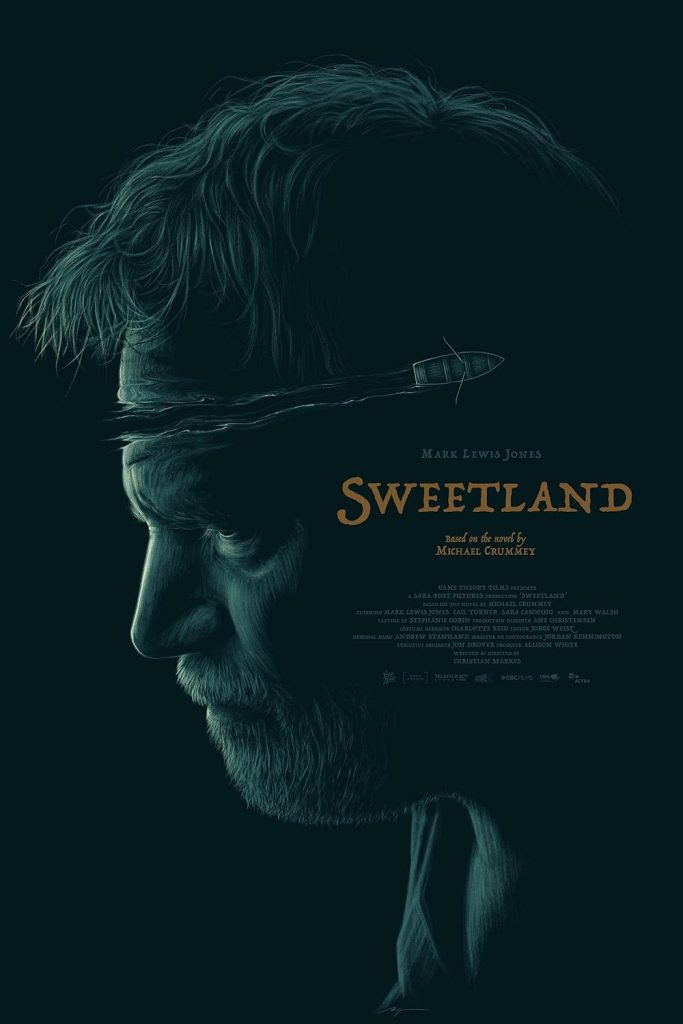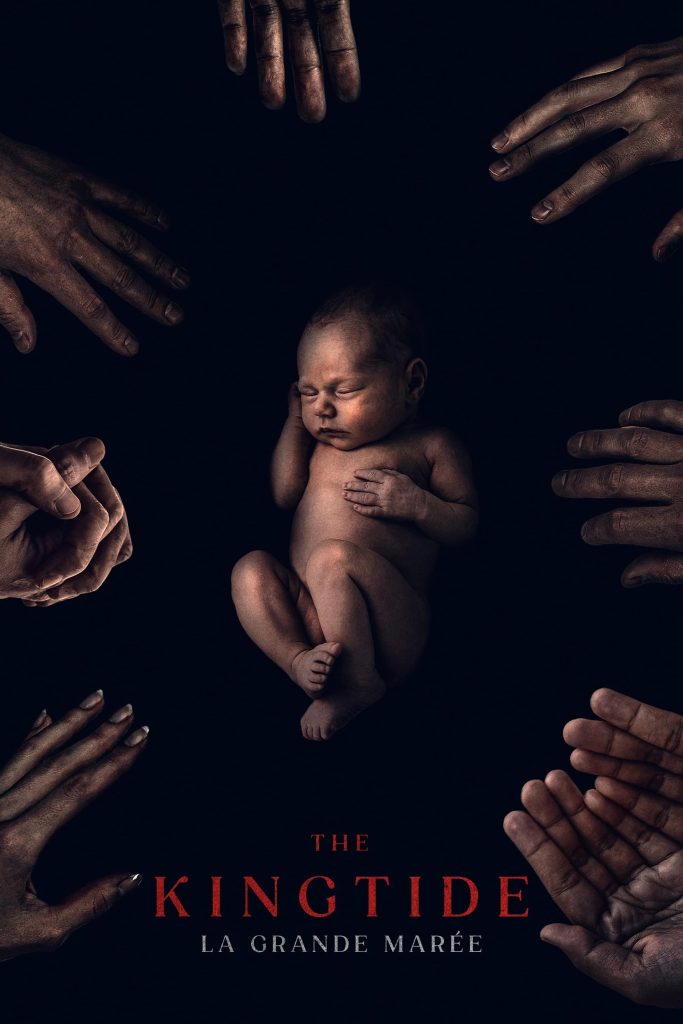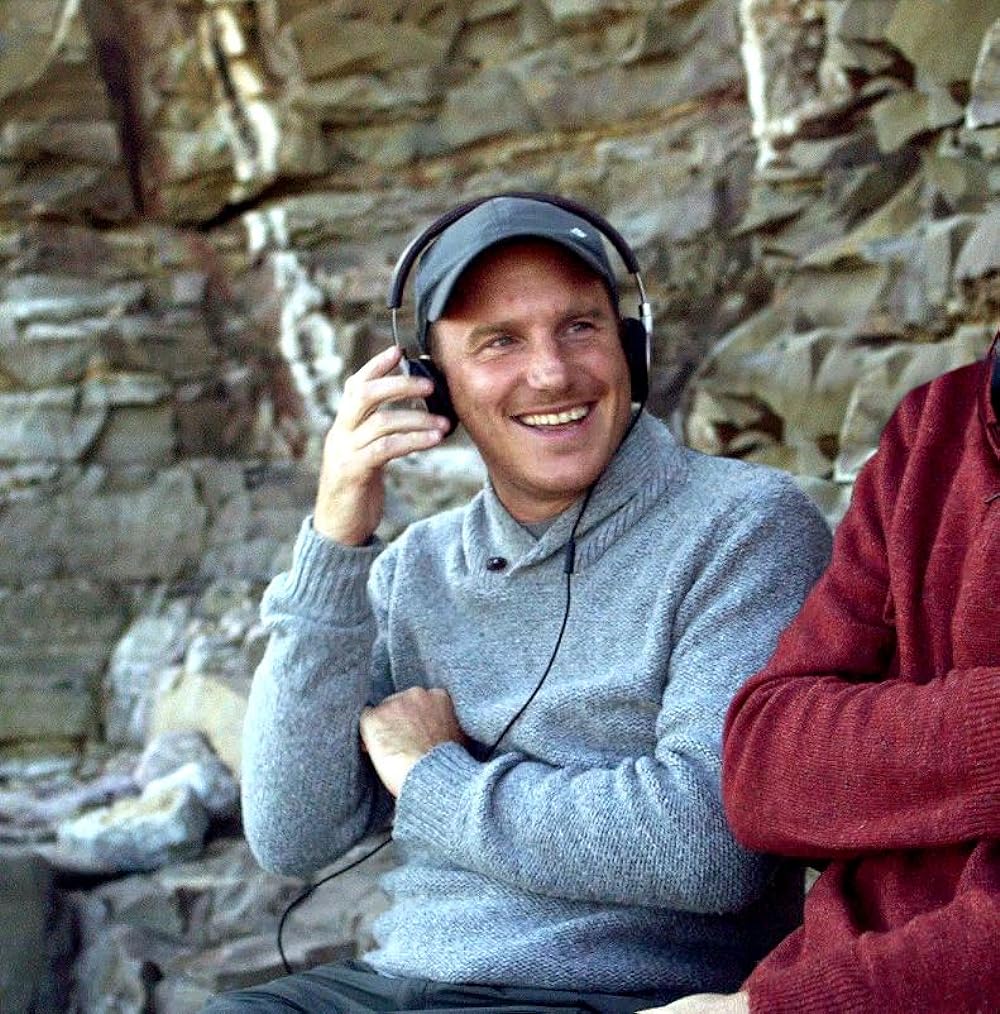Filmmaker and NSCAD alumnus Christian Sparkes puts Newfoundland and Labrador on the movie-making map with chilling tales and breathtaking cinematography.


For filmmaker Christian Sparkes (BFA Film 2004), there’s no place like home. The Canadian film director and screenwriter from St. John’s, N.L., studied film at both NSCAD University and the Canadian Film Centre. His 2014 debut feature, Cast No Shadow, was a Canadian Screen Award nominee in 2015. His third film, The King Tide, premiered in the Platform Prize program at the 2023 Toronto International Film Festival.
Currently, he’s living a rare dream for any filmmaker, let alone one based in Atlantic Canada: he’s just had two features in theatres at the same time. The outport resettlement drama Sweetland, adapted from the novel by Michael Crummey, is screening alongside the cult creeper, The King Tide. Both were filmed in Sparkes’ home province—he lives in St. John’s—and though there’s about $7 million difference between their budgets, they arrived at your local Cineplex as equals.
Sparkes originally came to NSCAD in 1997 as a graphic design student but switched to film when the program launched in his second year, becoming part of its first-ever cohort.
“My first semester someone came into the lunchroom and said, ‘Did you hear they’re getting a film program?,” he says. “I never thought about anything else ever again.”
What kind of movie town was St. John’s in the 1990s?
I would rent movies religiously. We had a local video store, Alan’s Video, where you could rent seven movies for seven days for $7.77. Just getting there was an adventure—you’d have to go through a concrete factory, across some rivers, and through the woods until you finally ended up across the street from Alan’s. My brother loved horror movies, I think that influenced my work now.
How was it being part of the first film class at NSCAD?
The film school was fantastic. All I needed was the gear in my hand and someone to point me in the right direction. Sam Fisher and David Clark were the instructors and they were great. David was an amazing curator, he would point out films you should watch. Sam was a practical guy, he knew all the gear.
When I was in film school it was right on the cusp of analogue and digital. I started cutting on a Steenbeck with James MacSwain and Dave Middleton, and by the time I graduated, we were on computers.
And how did it compare to your stint later at the Canadian Film Centre?
The CFC was just six months—the best part is the relationships you make there. I went on to make my first feature [Cast No Shadow] a year after I graduated with a producer I met at the CFC. But the same filmmaker you are going in, you are coming out. At NSCAD it was a whole new world: I had four years to experiment and find my voice, and meet artists of all different disciplines. When you’re younger you don’t appreciate the things that are happening in the moment, but there’s a freedom and a looseness to your ideas where you don’t question everything. Twenty years on, I find myself trying to get back to the person I was at NSCAD.
Both Sweetland and The King Tide are set in rural Newfoundland, where you can point a camera in any direction and it looks amazing. They’re also pretty dark in subject matter and reflecting times past for most of the rest of the world. What draws you to that?
It’s part of my culture and heritage. When I was younger I couldn’t get away from St. John’s quick enough—I wasn’t interested in Newfoundland. But you go away for a bit and you realize being from a place like that is what makes you interesting. The culture of Newfoundland is quickly disappearing, it’s just the cost of modernity. I could tell these very specific very rich cultural stories and I could do it before they disappear, even the landscapes are changing. Now feels like the time.

